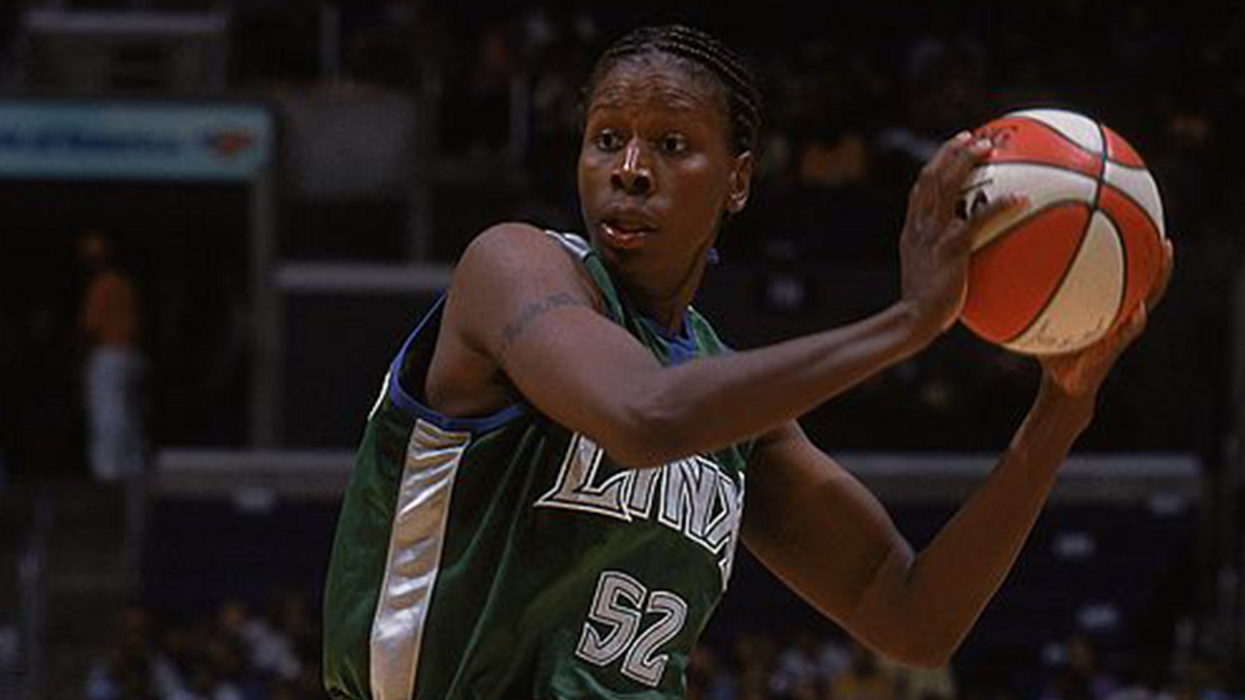After receiving litigious letters from atheist and anti-religion groups, schools across the country have removed Christmas-themed decorations and programming, and are ceasing to participate in charitable drives run by Christian organizations. Many Christian parents in these communities have cried out against the suppression of their right to religious freedom, vowing to stage protest rallies in front of the offending schools.
To be fair, both those who argue that there is a “war on Christmas” and those who claim there is no such thing have valid arguments, as can be observed in this roundup from Cleveland.com.
Whichever side you land on the issue, it is pretty obvious that school administrators have their hands tied. Fearing costly and time-consuming lawsuits, already under strain from slashed budgets, plus underpaid and overworked employees, school leaders are throwing up the white flag. Christmas and Christianity have become battlegrounds for the culture wars -- and public schools are just plain old tired of duking it out.
 In this Friday, Dec. 20, 2013, photo, Pancho Claus, Rudy Martinez, prepares to hands out gifts in a class during a visit to Knowlton Elementary School, in San Antonio. Pancho Claus, a Tex-Mex Santa borne from the Chicano civil rights movement in the late 1970s and early 1980s, is now an adored Christmas fixture in many Texas cities. (AP Photo/Eric Gay)
In this Friday, Dec. 20, 2013, photo, Pancho Claus, Rudy Martinez, prepares to hands out gifts in a class during a visit to Knowlton Elementary School, in San Antonio. Pancho Claus, a Tex-Mex Santa borne from the Chicano civil rights movement in the late 1970s and early 1980s, is now an adored Christmas fixture in many Texas cities. (AP Photo/Eric Gay)
Curiously, I personally have become a bone of contention in this brawl, whether I wish to participate or not. After almost 25 years as a public school motivational speaker speaking to nearly 2 million students, the traditional “Dateable” curriculum I present to young people has been suddenly deemed untrustworthy because I subscribe to a Christian worldview.
Anti-religion individual activists and groups that have sought to bar me from schools allege that by hiring me, school administrators violate the “constitutional separation of church and state.” It is assumed that speakers with a Christian background categorically seek to embed their beliefs into their message, operating under the ruse of being experts in a relevant non-religious educational field. Activists claim that in welcoming such individuals before their microphones, schools put the freedom of children’s hearts and minds at risk.
Before I address the notion of Gospel-smuggling in public schools, it is worth pointing out that “separation of church and state” is technically not a phrase found within the Constitution.
Rather, it comes from a letter that Thomas Jefferson wrote to the Danbury Baptist Association in 1802, in which the Founding Father seeks to assure the Association that the Federal government will not sanction one Christian denomination over the other. Jefferson references the ratification of the First Amendment as establishing freedom of religion, an action that he was confident had effectively built “a wall of separation between Church and State.”
 FIfth-grader Antwain Alexander, 11, center, executes some of his favorite dance moves as he performs a dance battle with teacher Beverly Baldwin and his classmates at fifth-grade teacher Kristi Dunstan's classroom on Thursday, Dec. 5, 2013, at Randels Elementary School in Flint Township, Mich. (AP Photo/The Flint Journal, Jake May)
FIfth-grader Antwain Alexander, 11, center, executes some of his favorite dance moves as he performs a dance battle with teacher Beverly Baldwin and his classmates at fifth-grade teacher Kristi Dunstan's classroom on Thursday, Dec. 5, 2013, at Randels Elementary School in Flint Township, Mich. (AP Photo/The Flint Journal, Jake May)
Furthermore, even after Freedom of Religion was ratified as the Constitution’s first amendment, the very founders who had written it could not agree on whether the measure blocked religion from influencing the state, or vice versa, as Steven Waldman, author of “Founding Faith: How Our Founding Fathers Forged a Radical New Approach to Religious Liberty,” recounts in this informative examination of the issue.
But far more important to me than correct application of constitutional law is my concern that by squabbling over the role of religion in public schools, we divert attention from what school is designed to do: prepare young people for adulthood.
In muzzling speakers with values-based messages simply because they subscribe to an unpopular religion, we also insulate schoolchildren from vital counter-messages to society’s most toxic and pervasive narratives.Young people are told today they should feel ashamed for looking or acting differently from what is touted as “normal” and are ridiculed and bullied for liking something deemed “uncool.” The ability to distinguish those false impressions from reality is critical to reaching a successful, meaningful adulthood.
 Amy Lawson, a fifth-grade teacher at Silver Lake Elementary School in Middletown, Del., helps student Melody Fritz with an English language arts lesson Oct. 1, 2013. (AP Photo/Steve Ruark)
Amy Lawson, a fifth-grade teacher at Silver Lake Elementary School in Middletown, Del., helps student Melody Fritz with an English language arts lesson Oct. 1, 2013. (AP Photo/Steve Ruark)
Every message I give is altered for its audience. If I’m speaking to younger adolescents, I tailor it to them. If I’m speaking to older students, I can go into more depth. In the same way, I adjust my talks for the venue in which I am speaking. The content of my “Dateable” curriculum in schools is not faith-, but rather values-based, and well within the law, which I greatly respect. If I am in a public school setting, I focus solely on the character-building aspects of dating and am careful not to bring a faith message into it.
Beyond the impact the culture wars have had on my personal career, I am encouraged that this controversy has gotten kids thinking on a deeper level about the messages they hear. What I have tried to achieve through my “Dateable” programs is to inspire young people to become more self-respecting, considerate and discerning human beings. I use their dating relationships as a vehicle for that message because so often it is through those first interactions that young people begin to mature into adults.
However, the imperative to respect oneself and one’s neighbor holds true no matter what one’s life stage or personal belief system. Even if a young person doesn’t agree with everything I say, it is a win if it makes them think. I want students to engage their critical abilities when I speak because it means they are more likely to approach other messages they hear with a healthy, well-practiced skepticism.
If I can motivate a young person to think for her or himself, that is a step in the right direction in my book. And whether you celebrate Christmas or not, I hope you can agree that guiding young people to be more considerate toward themselves and to those around them is key to building a more harmonious, joy-filled future.
–
TheBlaze contributor channel supports an open discourse on a range of views. The opinions expressed in this channel are solely those of each individual author.

 In this Friday, Dec. 20, 2013, photo, Pancho Claus, Rudy Martinez, prepares to hands out gifts in a class during a visit to Knowlton Elementary School, in San Antonio. Pancho Claus, a Tex-Mex Santa borne from the Chicano civil rights movement in the late 1970s and early 1980s, is now an adored Christmas fixture in many Texas cities. (AP Photo/Eric Gay)
In this Friday, Dec. 20, 2013, photo, Pancho Claus, Rudy Martinez, prepares to hands out gifts in a class during a visit to Knowlton Elementary School, in San Antonio. Pancho Claus, a Tex-Mex Santa borne from the Chicano civil rights movement in the late 1970s and early 1980s, is now an adored Christmas fixture in many Texas cities. (AP Photo/Eric Gay)
 FIfth-grader Antwain Alexander, 11, center, executes some of his favorite dance moves as he performs a dance battle with teacher Beverly Baldwin and his classmates at fifth-grade teacher Kristi Dunstan's classroom on Thursday, Dec. 5, 2013, at Randels Elementary School in Flint Township, Mich. (AP Photo/The Flint Journal, Jake May)
FIfth-grader Antwain Alexander, 11, center, executes some of his favorite dance moves as he performs a dance battle with teacher Beverly Baldwin and his classmates at fifth-grade teacher Kristi Dunstan's classroom on Thursday, Dec. 5, 2013, at Randels Elementary School in Flint Township, Mich. (AP Photo/The Flint Journal, Jake May)
 Amy Lawson, a fifth-grade teacher at Silver Lake Elementary School in Middletown, Del., helps student Melody Fritz with an English language arts lesson Oct. 1, 2013. (AP Photo/Steve Ruark)
Amy Lawson, a fifth-grade teacher at Silver Lake Elementary School in Middletown, Del., helps student Melody Fritz with an English language arts lesson Oct. 1, 2013. (AP Photo/Steve Ruark)


